 Lyn Turknett,
Co-founder and Co-chair, TLG
Lyn Turknett,
Co-founder and Co-chair, TLG
Just from personal observation, it’s hard to tell if there are greater similarities or differences between the various workforce generations, but generally, researchers have found it hard to confirm real differences in attitudes toward work and think that most of the differences we experience are due to age, not generational influences. It’s been very hard for researchers to find generational cohort differences in “job satisfaction, organizational commitment, turnover intentions, or work ethic.”
I do think that any differences due to generation or to age are probably exaggerated right now – likely by the recent pandemic and possibly by the polarization in our society. Not long after the pandemic began, we began talking about the great re-thinking, and certainly in my work with organizations and the individuals within them, I saw that. Everyone, no matter their career stage, seemed to be thinking hard about what was really important to them, and people separated their identity from their work in a way that just wasn’t as prevalent before the pandemic.
I also believe that the pandemic affected young people in ways that it did not affect those further along in their careers. People who joined the workforce during the pandemic or just before it were affected in unique ways – remote work was the only format for work some knew. Onboarding was particularly hard for any new employee during those years, and it was particularly hard for those who weren’t used to teams and organizations. Many hadn’t had a chance to learn norms for things like communication and accountability. It was also likely easier for more experienced workers to readjust to in-office requirements.
I’m not certain, but I wonder whether the crisis in mental health that has hit young people particularly hard may also play a role in what younger workers are experiencing now.
Age Gaps in a Generational Workforce
I think that the issues we see regarding different generations working together are not a matter of generation but of age, and I think there has always been a lot of tension between young and old in the workplace and beyond. Aristotle complained in the fourth century B.C. that young people “are high-minded because they have not yet been humbled by life, … They think they know everything and are always quite sure about it.”
The “millennial generation,” people who were born from the early 1980s through 2000, have been the target of the harshest criticism. Thousands of articles have been written criticizing their motivation, sense of responsibility, and work commitment, even though it has been extraordinarily difficult for researchers to document that there are any real generational differences.
In my opinion, age-related stereotypes (and I include generational ones in that) are, like gender or racial stereotypes, harmful in whatever direction they trend. Certainly, there are many differences – older workers are not digital natives and younger workers are – but I think we’d do better to focus on what we can do to help all of us learn from each other’s work, and work together more effectively. An excellent HBR article entitled “Bridging Generational Divides in Your Workplace” focuses on strategies – like two-way mentoring, strengthening psychological safety and candor, and small changes with big impact – that can make a real difference without doubling down on stereotypes.
Age-related criticism has often been one way – against the young – although I was personally well under thirty when “don’t trust anyone over thirty” was a societal meme. And I have no idea how my self-centered Baby Boomer generation now has a reputation for hard work and responsibility. Maybe it was just our age!

